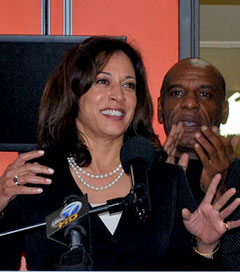There is no three-strikes law for crooked bankers, not even a law for a fifth strike, as The New York Times reported in the case of Citigroup, cited last month in a $1 billion fraud case. Unlike the California third-striker I once wrote about whom a district attorney wanted banished forever to state prison for stealing a piece of pizza from the plate of a person dining outdoors, Citigroup executives get off with a fine and by offering a promise not to do it again, and again and again.
As the Times reported when Citigroup agreed to settle SEC charges last month: “Citigroup’s main brokerage subsidiary, its predecessors or its parent company agreed to not violate the very same antifraud statue in July 2010. And in May 2006. Also as far back as March 2005 and April 2000.”
Not that the bankers face prison time, since the Justice Department has refused to act in these cases, and the Securities and Exchange Commission is bringing only civil charges, which the banks find quite tolerable. This time, the fine against Citigroup was $285 million, which may sound like a lot except that the bank raked off as much as $700 million on this particular toxic securities deal. As the Bloomberg news service editorialized, “… there should be only one answer from Jed S. Rakoff, the federal judge in New York assigned to weigh the merits of the agreement: You’ve got to be kidding.”
Not to pick on Citigroup, the too-big-to-fail bank that Clinton administration Treasury Secretary Robert Rubin helped make legal before he was paid off with a $126 million job on Wall Street; that corporation was not the only serial offender. “Citigroup has a lot of company in this regard on Wall Street,” the Times noted, “nearly all of the biggest financial companies—Goldman Sachs, Morgan Stanley, J.P. Morgan Chase and Bank of America among them—have settled fraud cases by promising that they would never again violate an antifraud law, only to have the SEC conclude they did it again a few years later.”
So forget relying on the federal government to hold the Wall Street swindlers accountable. Indeed, the Obama administration has been involved in negotiating a deal with state attorneys general to settle their complaints with the banks for a pittance of compensation for the victims. In return, the states would promise not to institute further legal proceedings against the banks.
The fix was in for what a New York Times editorial on Tuesday headlined “Letting the Banks Off Easy” described as “paltry” mortgage relief, reducing by less than $20 billion the balances of 14.5 million underwater homeowners who are “drowning in some $700 billion of negative equity.” The deal has been stalled by the refusal of California Attorney General Kamala Harris to accept this sellout. Among its other disastrous concessions would be ending further investigation by the states into financial skullduggery connected with the housing meltdown.
In September, Harris, elected in a Democratic sweep of the state’s top offices in 2010, went against the dictates of the Democrat in the White House, stating that she refused to release the banks from legal liability for the mortgage crisis. That is the nub of the pending White House-brokered deal with the banks. As the Times summarized it: “The proposed settlement reportedly would prevent the states from pursuing claims against banks relating to fraud or abuse in the origination of the bubble. It would also prevent states from pursuing claims for foreclosure abuses, like improper denial of loan modifications.”
Traditionally the states provided the essential regulation of mortgage origination, ownership and sales as a transparent process duly recorded and subject to public examination at the county level. But in order to facilitate the gathering of those mortgages into the sort of collateralized debt obligations that the banks could then bet on and trade worldwide, homeownership became a murky matter. Many of the mortgages now in question, including the ones that Citigroup’s “synthetic” derivative was based on, are no longer owned by the banks that originated them. They are instead part of the Mortgage Electronic Registration Systems (MERS) database, owned by a consortium of banks and residing in computers in Reston, Va.
The MERS system is described by the Times as “a land registry system implicated in bubble-era violations of tax, trust and property law.” The Obama-supported settlement would make it very difficult if not impossible to investigate at long last the workings of MERS and other systemic sources of what is now a full-blown international economic crisis. As the Times editorial put it, “In effect, the legal waivers being contemplated would let the banks pay up to sweep wrongdoing under the rug.”
Thankfully, we have a few state attorneys general, most prominently California’s Harris, standing up for the American people, but it is outrageous that a president who avowedly committed to defending the public interest would now be subverting that effort rather than leading it.
Trump is silencing political dissent. We appeal for your support.
Progressive nonprofits are the latest target caught in Trump’s crosshairs. With the aim of eliminating political opposition, Trump and his sycophants are working to curb government funding, constrain private foundations, and even cut tax-exempt status from organizations he dislikes.
We’re concerned, because Truthout is not immune to such bad-faith attacks.
We can only resist Trump’s attacks by cultivating a strong base of support. The right-wing mediasphere is funded comfortably by billionaire owners and venture capitalist philanthropists. At Truthout, we have you.
Truthout has launched a fundraiser, and we must raise $31,000 in the next 4 days. Please take a meaningful action in the fight against authoritarianism: make a one-time or monthly donation to Truthout. If you have the means, please dig deep.
